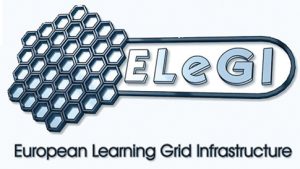News Story
£5M ELeGI Project Begins
Marc Eisenstadt, Friday 5 Mar 2004
March 1st-3rd saw the full gathering in Barcelona of a new EU project in which KMi and the OU Department of Computing are playing a strong role. The project, entitled “European Learning Grid Infrastructure (ELeGI),” comprises 23 partners across Europe, and is worth a combined total of nearly £5M, of which over £300K will come to the OU, approximately £200K to KMi.
The meeting was attended by KMi's Marc Eisenstadt and Jiri Komzak, who are working on 'Enhanced Presence and Conversational Processes' with Prof. Stefano Cerri's group at the University of Montpelier in France. Bashar Nuseibeh and Debra Haley of the OU's Department of Computing also attended, representing their work on new technologies for e-assessment within ELeGI.
The project itself was ranked 1st among all Integrated Project proposals submitted for FP6 Information Society awards, and is described as follows in the project abstract:
“The European Learning Grid Infrastructure (ELeGI) project has the ambitious goal to develop software technologies for effective human learning. With the ELeGI project we will promote and support a learning paradigm shift. A new paradigm focused on knowledge construction using experiential based and collaborative learning approaches in a contextualised, personalised and ubiquitous way will replace the current information transfer paradigm focused on content and on the key authoritative figure of the teacher who provides information.
We have chosen a synergic approach, sometimes called human centred design, to replace the classical, applicative approach to learning. With consideration of humans at the centre, learning is clearly a social, constructive phenomenon. It occurs as a side effect of interactions, conversations and enhanced presence in dynamic Virtual Communities: experimental research concepts integrating new powerful developments of services in the Semantic GRID, the leading edge of currently available and future ICT technologies, with highly innovative and powerfully significant scenarios of human learning.
The ELeGI project has three main goals:
Goal 1. To define new models of human learning enabling ubiquitous and collaborative learning, merging experiential, personalised and contextualised approaches.
Goal 2. To define and implement an advanced service-oriented Grid based software architecture for learning. This will allow us to access and integrate different technologies, resources and contents that are needed in order to realise the new paradigm. This objective will be driven by the pedagogical needs and by the requirements provided by the test-beds (SEES) and informed by the experience gained through implementing the demonstrators.
Goal 3. To validate and evaluate the software architecture and the didactical approaches through the use of SEES and demonstrators. The project will build extensively on advanced work already done, creating new learning environments rather than creating new learning resources per se.”
Connected
Latest News
Three KMi researchers were recognised as top scientists in Computer Science at the OU
KMi’s Generative AI mini-Scotland Tour
AI for the Research Ecosystem workshop #AI4RE
KMi congratulates Dr. Joseph Kwarteng for successfully defending his doctoral thesis






